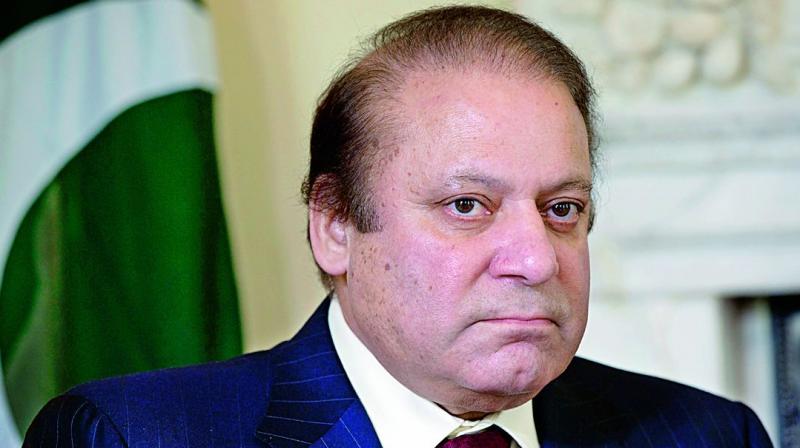View from Pakistan: Victimisation' raises Nawaz's popularity

Since Nawaz Sharif’s first disqualification in July 2017, the PML(N)’s public posturing has been that of an under-siege Opposition party. It has openly pointed fingers at the judiciary for victimising its leader, and has alluded in code to this being done at the behest of the military. Another constituent part in this narrative is that voters see what’s happening for what it is, and reject it outright. In short, Nawaz being disqualified twice has, at the very least, consolidated his popularity, if not increased it outright. This narrative has been built through a number of instruments. The first is the discourse of the party itself, either through Nawaz and Maryam, or through their faction in the party that includes a number of federal Cabinet ministers and other elected representatives. When seemingly influential people say something enough times in the press and through television interviews, it eventually gains a certain amount of independent traction.
The second instrument has been the confident use of public events and rallies. Nawaz in office was a bored, lonely figure. On the (pre-) campaign trail he appears energetic. He’s charged, we’re told, by the overwhelming response and solidarity of voters. To this end, the strategists have used faction loyalists (as well as aspirants) in key constituencies to hold large gatherings in the months following the first shock. This has helped build the perception that the party’s elite candidates and mid-tier brokers are holding together, that Nawaz is still in the driver’s seat, and that his connection with sympathetic voters is what will favourably tip the balance for candidates in competitive seats.
Finally, the third instrument has been spinning by-election results as proof of how mujhe kyun nikala (why did they oust me) resonates in the only arena that counts. It started with NA-120, when the PML(N) held on to Nawaz’s vacated seat. It grew with another win in Chakwal in early January. And it has reached a crescendo with an upset win in Lodhran a couple of weeks ago. So much so that after last week’s repeat disqualification, the debate in sections of the media was less on the question of whether it constituted another a blow for Nawaz, and more on the degree to which it benefits him. Before moving on to the politics behind this narrative, it’s worth considering whether it actually holds any empirical value. Is there really a wave of sympathy consolidating the party’s chances for 2018? The simple answer is that at this stage it’s impossible to tell. More relevantly, as Adnan Rasool’s excellent account of the Lodhran election on Dawn’s website highlighted, it’s actually localised, candidate and faction-specific factors that account for the vast majority of the result in rural and peri-urban areas. The connection between these factors and Nawaz’s narrative of sympathy is tenuous at best.
More broadly, the very idea of victimisation working in favour of a disqualified politician allegedly facing the wrath of the establishment in Punjab seems counter-intuitive. As a prosperous province without a recent history of politics on the basis of rights or ideational values, the safe attainment of patronage and service delivery are considered more relevant. How does a politician allegedly fighting a much more powerful foe, and one who can’t even hold office, guarantee any of those two things? Some point to the lack of mass defections by these brokers or the relative stability of the party as more proof of the sympathy wave. However, it is far more plausible to link this to the five months and several more million rupees of public funds available till the government’s tenure expires. This is, after all, the province which expressed remorse at Benazir’s tragedy and then proceeded to vote for Sharif.
The lack of systematic data to back it is enough reason for anyone to think twice before accepting the sympathy narrative wholesale. Finally, there could be another reason for why the narrative and perception of voter solidarity (rather than actual evidence) is being deployed. It could well be that the discourse around by-election wins, the incessant public statements, and the purposefully cultivated crowds are the only reason another faction in the party is kept in its place. If the old adage that voters cast their vote for Sharif and no one else is kept alive — regardless of its empirical validity — then the political fortunes of those who represent Nawaz and who’ve invested in Nawaz, and who’ve burnt all other boats, might also survive. Because otherwise, they’re plenty of people, both within and outside the family, waiting in the wings.
By arrangement with Dawn

